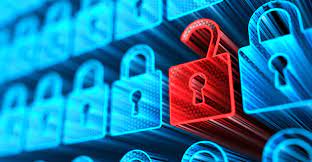As an individual who uses a mobile phone, computer, and Internet of Things (IoT) devices like Smart wristwatches, smart refrigerators, doors, and all, the importance of cybersecurity to you can never be over-emphasized. Cyber threats would affect you as much as they affect business organizations.
You need cybersecurity to keep yourself safe. If you are thinking that you have nothing to lose if you get scooped, have you ever wondered why those guys keep calling you to ask you for your private bank details while pretending to be a customer care agent from your bank?

Have you also imagined why there are very many people coming to your DM to talk you into giving out one information or the other? Or why do you constantly receive emails from unknown sources asking you to open one attachment or another or download or click one link to verify a non-existent account that you have not created? It boils down to hacking your social media account to enable them to use it to hook on your friends while pretending to be you.
It may be more expensive to carry out an attack on an individual using sophisticated cyber threat tools and pieces of equipment. But why would an attacker go through such rigor when they can easily malign you by using social engineering to spin your emotion and have you willingly give them your information and also help them achieve their end by just hitting that link?
See Also: First Bank Suspends International Transactions On Niara Cards
Why do you need cybersecurity as an individual?
- You would not want to be the reason other people in your contact are affected.
- You would not want to lose all your money in the bank or in your wallet.
- You would not want to lose your social media account or start afresh in growing your friend/followership base.
- You would not want your IoT devices to be used as a tool to have you or your house spied on.
- you would not want to lose the files in your system to malware, bugs, and viruses.
- You would not want your system to crash.
- You would not want to give hackers access to your business or your employer’s network.
- You would not want to be sharing your data or Wi-Fi with unknown people.
Best Cybersecurity practices for an individual
- Enforce strong password mechanisms across all accounts and devices and change your passwords at least once every six months.
- Back up and encrypt relevant data and files.
- Safely discard files and data when they are no longer needed.
- Enable a two-factor authentication system such as credit card or token, paraphrase, SMS notification, fingerprint, face ID, etc.
- Always update the operating system, software, and applications.
- Customize traditional firewalls to help control and monitor incoming traffic into your system or network.
- Use good anti-virus programs to keep tight against viruses and other related malware.
- Change the default password of your smart devices such as routers, IoTs, etc., and avoid connecting them together to your local network.
- Be cautious of opening email attachments and clicking links without proper verification from the sender.
- Avoid sharing or using random USB sticks, public Wi-Fi, and logging in to your account with public computers.
- Ensure you download software from the official website and application from Google Play or Apple stores.
- Never give out information relating to your work, financial status, or credit card details to strangers or social media friends.
- QR codes can also be used to distribute malware. Be also ware!
- Cybersecurity And Your Personal Cyber Safety - September 22, 2022